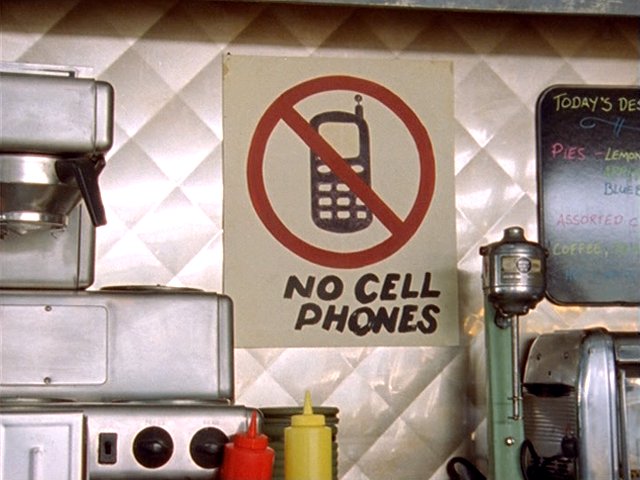As the clever name created by The Tea Terrace suggests, the ‘Phonetentiary’ is basically a penitentiary for phones.
According to the chain’s MD, Ehab Shouly, smartphones threaten the lost art of conversation.
The Phonetentiary is a small box with a combination lock which will be offered to customers to use at their tables. The box looks like a normal book on the outside and has a concealed compartment for the phones under the book cover. “We wanted it not to look out of place at the dining table so made it in the shape of a book,” Shouly said.
Only the waiting staff of the three restaurants and tea rooms under The Tea Terrace know the combination lock number. Guests can out their phones on silent mode and lock them in the Phonetentiary for the duration of their meal or until they request their server to open it for them. The Phonetentiary stays at the guests’ table at all times and its use is free of charge.
The idea behind this is to encourage customers to have more quality conversations at the breakfast, lunch or dinner table away from the digital distractions of their smart phones.
“We want to bring back good old conversations. Very often we see guests, especially families with tweens or teenagers, not engaging in conversation because the children are on their smartphones. Or sometimes friends would be busy posting photos of themselves at our tea rooms or their food or our lovely throne chairs on social media. We want to offer them a chance to really engage with each other more”, said Rowena Shouly, director of The Tea Terrace.
“In the old days the tradition of afternoon tea was a social occasion for the guests to enjoy conversations and a bit of gossip! The Phonetentiary will definitely help people go back to conversation especially those addicted to their smart phones,” Shouly added.
The Phonetentiary will also be available for customers to buy to take home with them in case they want to try this social experiment at home to see if it helps create better quality time for the family.
“The Tea Terrace is all about creating fantastic and memorable experiences for our guests. We are confident those who choose to utilise the service will have more time to enjoy each other’s company and the quirky surroundings of our tea rooms,” she added.
A new global study from the University of Michigan explores how people use mobile phones during meals and how they feel about other people doing so. The researchers surveyed 1,163 people between the ages of 8 and 88 in English-speaking countries around the world and found the appropriateness of using phones at meal times varies depending on the age of the user and the company they keep.
“People have done other activities during meals like reading a newspaper or watching the television for years. But smartphones introduce a new challenge,” according to the co-author of the Michigan study, Sarita Schoenebeck. “You can’t tell what someone else is doing on their smartphone, so you have no idea if they’re ignoring you in order to reply to an urgent email or to play Candy Crush Saga.”
Perhaps not surprisingly, people’s own mobile phone use is the strongest predictor of their beliefs about appropriateness. In other words, if you use your phone at meals a lot, you probably think it’s okay to do so.
The researchers suggest that smartphone developers might build more visibility into the devices. For example, a phone might be able to detect that a user is at a meal and ask her if the activity is important to finish now or if she would like to wait until after the meal.
Or a phone might flash a small light to indicate the nature of use to people nearby—if an activity is deemed important by the group, for example, checking an important work email while at a business lunch.







